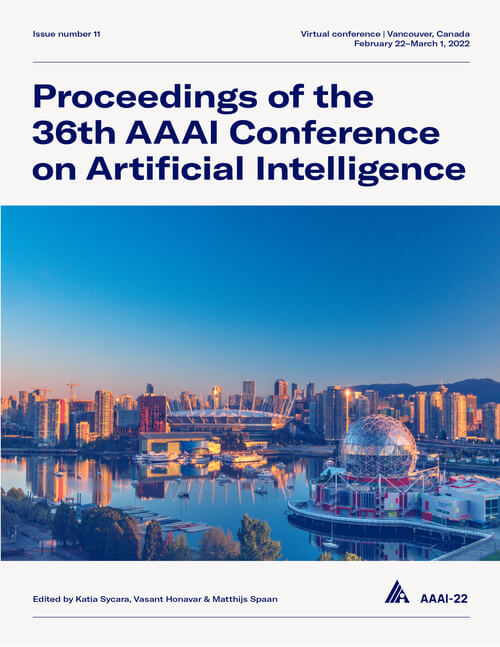SepFusion: Finding Optimal Fusion Structures for Visual Sound Separation
DOI:
https://doi.org/10.1609/aaai.v36i3.20266Keywords:
Computer Vision (CV)Abstract
Multiple modalities can provide rich semantic information; and exploiting such information will normally lead to better performance compared with the single-modality counterpart. However, it is not easy to devise an effective cross-modal fusion structure due to the variations of feature dimensions and semantics, especially when the inputs even come from different sensors, as in the field of audio-visual learning. In this work, we propose SepFusion, a novel framework that can smoothly produce optimal fusion structures for visual-sound separation. The framework is composed of two components, namely the model generator and the evaluator. To construct the generator, we devise a lightweight architecture space that can adapt to different input modalities. In this way, we can easily obtain audio-visual fusion structures according to our demands. For the evaluator, we adopt the idea of neural architecture search to select superior networks effectively. This automatic process can significantly save human efforts while achieving competitive performances. Moreover, since our SepFusion provides a series of strong models, we can utilize the model family for broader applications, such as further promoting performance via model assembly, or providing suitable architectures for the separation of certain instrument classes. These potential applications further enhance the competitiveness of our approach.Downloads
Published
2022-06-28
How to Cite
Zhou, D., Zhou, X., Hu, D., Zhou, H., Bai, L., Liu, Z., & Ouyang, W. (2022). SepFusion: Finding Optimal Fusion Structures for Visual Sound Separation. Proceedings of the AAAI Conference on Artificial Intelligence, 36(3), 3544-3552. https://doi.org/10.1609/aaai.v36i3.20266
Issue
Section
AAAI Technical Track on Computer Vision III

